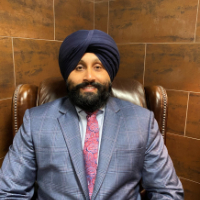 Artois Juvenile Law Lawyers, California
Artois Juvenile Law Lawyers, California
Sponsored Law Firm
-
 x
x

Click For More Info:
-
Magid Law
112 Main Street Weaverville, CA 96093» view mapCriminal Defense Law Experienced, Aggressive Criminal Defense
Hiring a criminal defense attorney is one of the most important decisions you will ever make. Don’t be a victim of the system. Choose Benjamin Magid as your attorney.
800-761-7580
Not enough matches for Artois Juvenile Law lawyer.
Below are all Artois Criminal lawyers.
Sponsored Lawyers
1-2 of 2 matches
Criminal, DUI-DWI, Divorce & Family Law, Business, Real Estate
When you are facing serious criminal charges, you deserve a strong advocate in your corner who is not afraid to push back against the prosecution’s case. At Pamma Law Firm in Yuba City, California, I understand what my clients are going through and fiercely defend their freedom in court. As a trilingual attorney — fluent in English, Spanish and Punjabi — I pride myself on being able to take on a diverse range of clients in Sutter County and throughout Northern California who are facing all kinds of felony and misdemeanor charges. At Pamma Law Firm in Yuba City, California, I am dedicated to defending clients throughout Sutter County and Northern California against criminal charges. To discuss your legal rights and options, call 530-329-8424 or contact me online.
(more)


 Benjamin Magid Weaverville, CA
Benjamin Magid Weaverville, CA Practice AreasExpertise
Practice AreasExpertise

